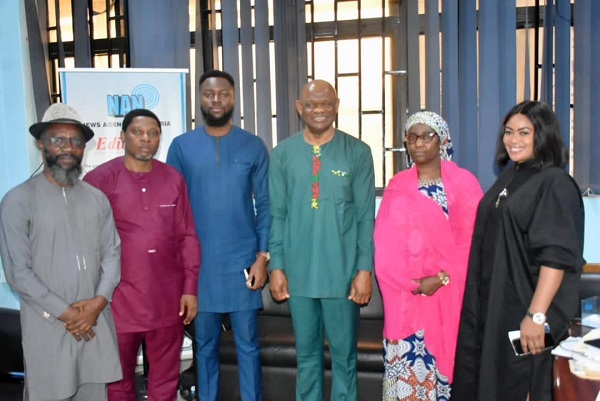
The News Agency of Nigeria (NAN) has enjoined public health agencies in the country to engage journalists in trust-building exercises to curb infodemics.
The NAN editor-in-chief (EIC), Mr. Silas Nwoha made this call when the agency received a delegation from the Nigeria Centre for Disease Control (NCDC) and its partners as part of activities to identify the priorities and training needs of journalists across the country at its headquarters yesterday (August 18, 2022) in Abuja.
The EIC posited that to restore trust, channels of communication between public health agencies and journalism in the country, such as those established and maintained globally, must become more widespread in the country.
“Such networks will be used to educate public health agencies about journalism ethics and journalists about clinical terminologies and health care ethics.
“Just as clinicians are responsible for maintaining the confidentiality of patients’ information, journalists are obliged to protect their sources from harm or stigma and to engage in unbiased reporting,” he advocated.
Earlier in his remarks, the NCDC media relations lead, Mr. Chukwuemeka Oguanuo said that the country’s public health institute is undertaking an initiative to strengthen the capacity of journalists through integration into public health emergency preparedness and response.
“The NCDC is the country’s national public health institute, with the mandate to lead the prevention, detection and response to infectious disease outbreaks and public health emergencies in Nigeria.
“The role of communication in attaining this mandate is critical as indicated by the 2017 World Health Organisation (WHO) Joint External Evaluation (JEE) report 5.1,” he said.
Oguanuo said that the COVID-19 pandemic showed the importance of communication for a successful response and also exposed challenges to effective communication.
He listed the challenges as a lack of capacity by journalists to effectively interpret and communicate science, rampant infodemics and poor adherence to recommended behaviour change by the populations, among others.
“The COVID-19 pandemic has also informed us that effective communication requires a whole-of-society response with the media playing a critical role in advocacy and amplifying key messages from NCDC to create awareness and on preventive measures for COVID-19 and other infectious diseases.
“However, their impact has been stymied by poor capacity for science communication, unprecedented level of misinformation and disinformation about the disease and understanding some non-pharmaceutical recommendations,” he explained.
He said that considering their reach and level of trust, the role of journalists in tackling this issue with the COVID-19 response and other public health events cannot be underestimated.
“To this end, the NCDC is leading a collaboration with Breakthrough Action, Nigeria (BA-N) and African Field Epidemiology Network (AFENET) to establish the media preparedness against current and future outbreaks in three programme areas – epidemiology, infodemic management and risk/social behaviour change communication (EIS),” he disclosed.
Similarly, the regional coordinator, AFENET, Dr. Patrick Nguku said that the training programme is built on the UNESCO media development indicators (MDIs) to equip the journalists with technical and practical knowledge to enhance their understanding of basic epidemiology.
Nguku, who was represented by AFENET communication specialist, Mr. Oliver Iorkase added that the training would also mitigate general scientific reporting, decipher right and wrong data, publication, research, etc.
“It is aimed at utilising journalists to focus the spotlight on field epidemiology and accentuate its criticality and essentialness to a wider spectrum of decision-makers and development partners,” he said.
In his comments, the deputy project director, risk communication, Breakthrough ACTION, Nigeria (BA-N), Dr. Umar -Farouk Olayinka disclosed that as part of the development of the training programme, a national media needs assessment would be conducted in the coming weeks.
Olayinka, who was represented by BA-N communication specialist, Mr. Eze Eze said that the project is specifically tailored to build the capacity of journalists (printed press, radio, television and digital media).
She explained that the training would dwell on basic epidemiology and scientific reporting, infodemic management and risk/social behaviour change communication, establish a network of trained journalists and incorporate them into the mainframe of outbreak response in the country.
Meanwhile, the head, health desk, NAN, Hajia Hadiza Aliyu said that reporters can not guess on science and health reporting as a journalist.
Aliyu said journalists remain integral to health communication and should be integrated into the nation’s response to present and future pandemics.
Also, she called on all relevant agencies to recognise the strength of the media, noting that good journalists strive to be allies in navigating an outbreak.

